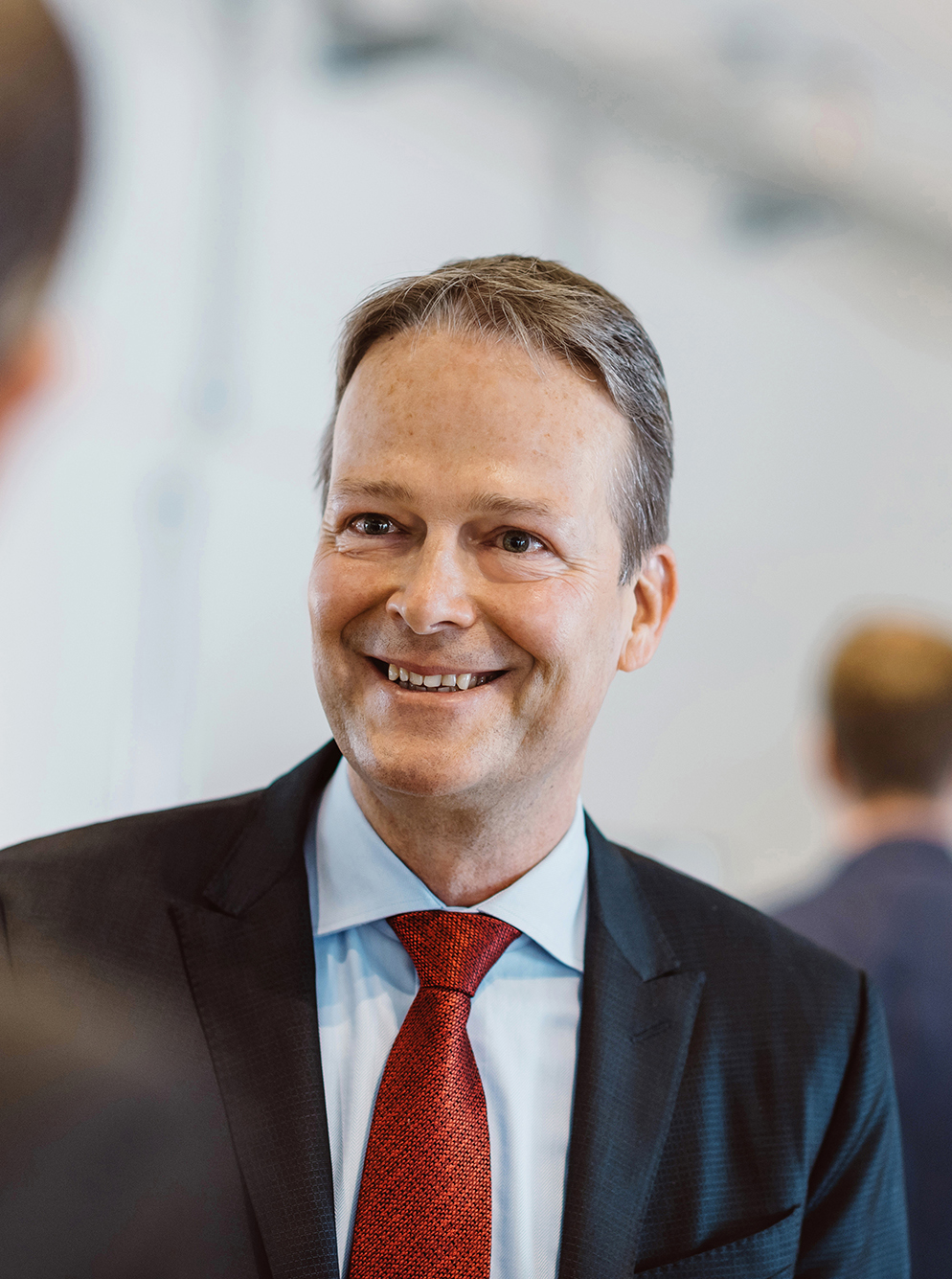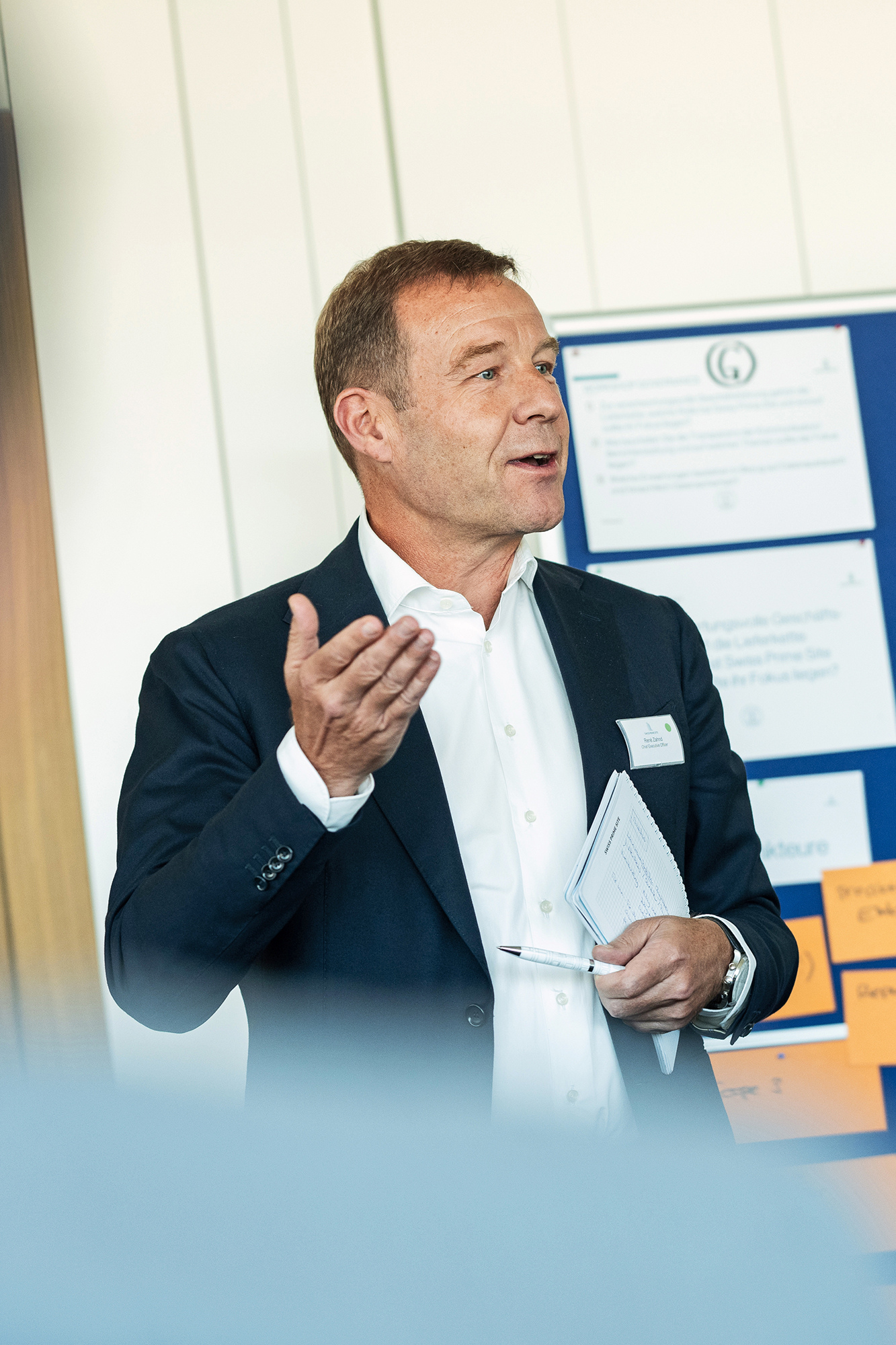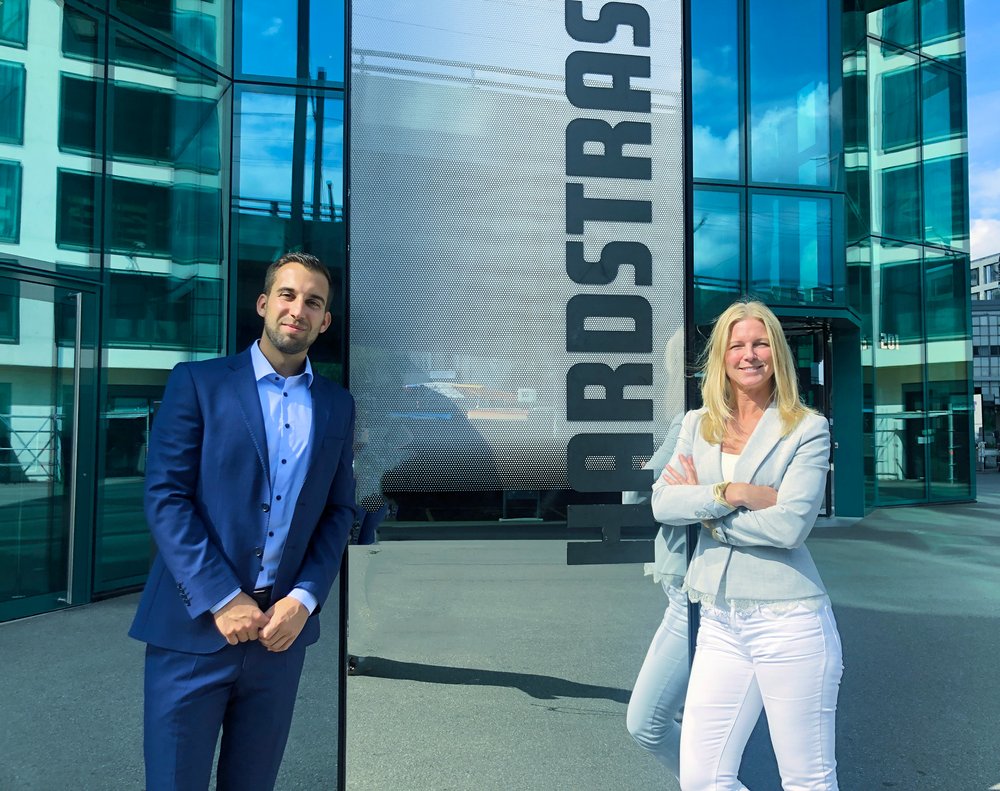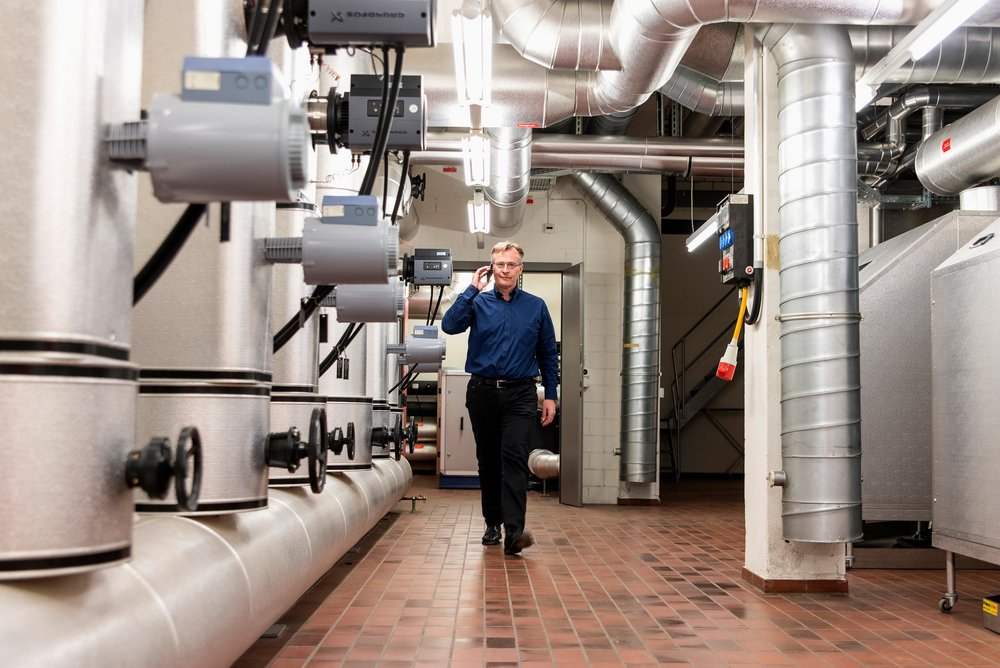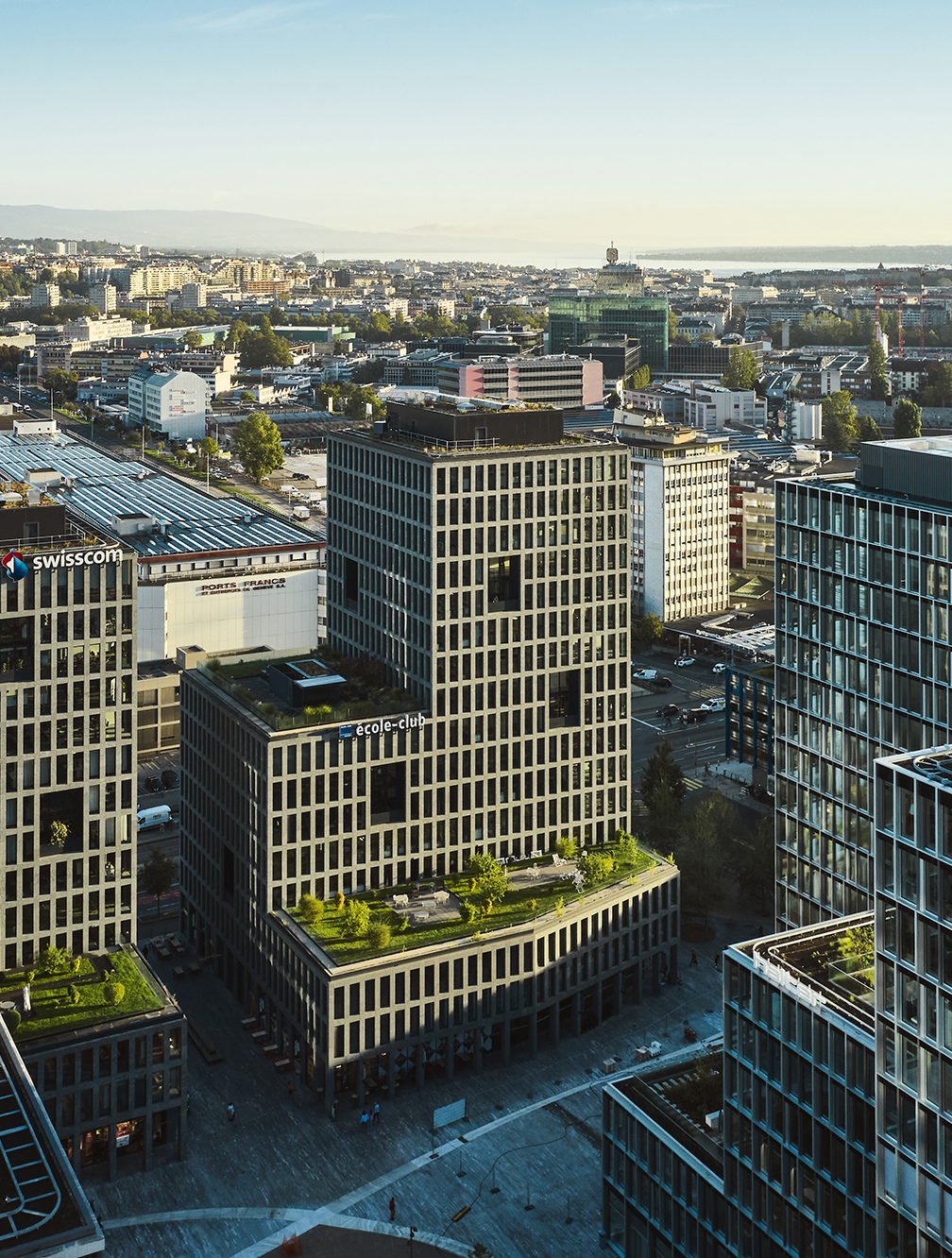The past year has been challenging in many respects. But Swiss Prime Site has taken important strategic steps in this tough environment and achieved positive results – clear testament to the resilience of our company and our business model.
Transformative year
Early on in the year, we announced we would wind down operations at Jelmoli – a very emotional moment and a difficult decision. At the heart of our considerations, besides the economic perspective, were our concerns about how the employees would adapt to the new circumstances and around the loyalty from many of our customers. But we are firmly convinced that the Jelmoli building will benefit from the realignment and will retain its role as a particularly vibrant meeting place in the city. We are aware of the unique significance of the property for the city centre of Zurich and will ensure it maintains this status. The second big step took place shortly afterwards when we sold our property management business Wincasa to Implenia. Both Wincasa and the Implenia Group are strategic partners for our business and we look forward to seamless continuation of our positive partnership.
Today, we present Swiss Prime Site to you as a focused real estate company. Since the sale of Tertianum in 2020, we have been transforming ourselves from a conglomerate with over 6 000 employees into a specialised, agile company, which will soon have around 200 employees and focus on our core competence: the real estate business. This will allow us to fully align our expertise with our portfolio and realise synergies with third-party investors. This focus will make our operations more effective and efficient, creating a more distinctive business profile. Our properties are in prime locations with a high degree of versatility and flexibility in usage types, which means they attract a particularly robust tenant base with a long-term focus. We generate growth primarily through our high-quality developments and with additional external capital in the Asset Management division.
Exciting environment
Regrettably, this past year was once again dominated by global geopolitical tensions. We are deeply shaken by the conflicts in Ukraine and the Middle East and we earnestly hope these situations will be resolved as quickly as possible. In our day-to-day operations in Switzerland, these ongoing conflicts have had little effect thus far. Our tenants and customers often tell our employees that they increasingly appreciate Switzerland as a place to live and do business. The strong Swiss franc, low inflation, and an economic environment that remains robust are certainly a testament to that. Switzerland is once again living up to its reputation as a «safe haven», where the majority of economic indicators point to a significantly better situation than in the rest of Europe.
The changing inflation and interest rate environment has had a major impact on expectations in the real estate sector over the past year and contributed to a high level of uncertainty. But the end of the year brought signs of change, with inflation slipping back considerably. We believe that the market sentiment is improving markedly and we are seeing real estate investors becoming more active in the market again.
Significant milestones
Swiss Prime Site has posted good operational results in this highly eventful year. Despite significantly higher interest rates, we could even slightly increase our comparable operating cash flow (FFO I CHF 4.05 per share vs 4.00 in 2022). Thanks to our strong financial position, we can propose an unchanged dividend of CHF 3.40 per share to the Annual General Meeting.
We continued to benefit from our fundamentally new financing strategy implemented in 2021. With a strong balance sheet, low levels of debt, and a high share of unencumbered assets, Swiss Prime Site has greatly improved its profile in the credit market: in 2023, we successfully placed CHF 425 million in bonds within our «Green Finance Framework» on the capital markets and also extended our credit lines with a sustainability link despite the challenging situation in the banking market.
We are particularly proud to have delivered two projects to new tenants in the most important Swiss business centres in 2023: in Zurich, Google took over a fully renovated office building, our first major circular building project, while the new Alto Pont-Rouge building in Geneva welcomed the French bank BNP Paribas along with other tenants. Both projects were completed within budget and on time, proof of our exceptional development expertise.
We once again actively managed and further improved the real estate portfolio last year, resulting in a record low vacancy rate of 4%. Under our capital recycling strategy, we have also sold older buildings and properties outside of economic centres. We are primarily reinvesting the proceeds in our growth through the developments mentioned above and other construction projects. Overall, our development focus is on centrally located offices, laboratories and logistics buildings – it is in our DNA to aim for the highest sustainability standards.
Our Asset Management division felt the uncertainty on the investor side, especially in the first half of the year. There was a lack of appetite anywhere in the market for new investment, which meant very limited new funds for acquisitions in the portfolio. In this environment, Swiss Prime Site Solutions stood out even more and increased managed assets by close to 10% to CHF 8.4 billion. Our team excels in the market with its real estate expertise and top-notch fund and investment products. Our extensive experience makes us the preferred partner for more complex transactions, such as contributions in kind from pension funds and sale & lease-back transactions for commercial properties.
Strategic outlook
Swiss Prime Site is very well positioned with its implemented focus on the two pillars of «Real Estate» and «Asset Management» and we look to the future with confidence. After a transformative 2023, we will be focusing even more on fully tapping the potential in our own portfolio and in the Asset Management division. Our strategic priorities are the following.
Rental growth: We see further potential here in terms of our lettable areas as well as rental rates and will become more efficient by focusing on our portfolio.
Developments: We are creating landmarks in Switzerland – the new Jelmoli building is just another example. In 2024 and 2025, we will hand over several large buildings which have already been let, and we are planning more projects such as Grand Passage in the centre of Geneva.
Asset Management: Our goal is to further broaden and diversify our Asset Management business. We aim to expand our product range, tap into new groups of investors, and foster partnerships.
Sustainability: We aspire to be a leader in sustainability. Our teams work day in and day out on innovative concepts for saving resources and promoting renewable energy with an eye to the future. Our CO2-reduction pathway and circular construction are the main steering elements.
I personally feel very proud to be representing Swiss Prime Site and working with such a professional and motivated team. On behalf of the entire Board of Directors, I would like to thank you, our shareholders, for your trust and support. Together with our tenants, customers, employees and partners, we will continue to create sustainable value with living spaces that meet the needs of our modern society.
